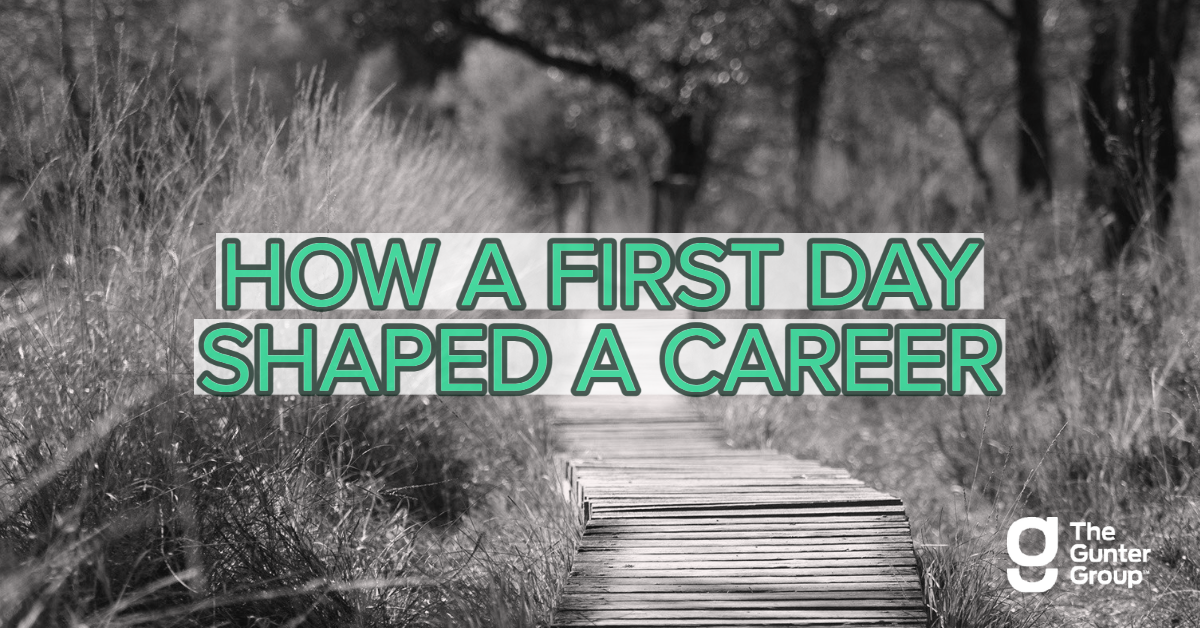I showed up nervous on my first day at The Gunter Group.
That morning, my manager and I went for a walk along the Willamette River. After some getting-to-know-you chatter, I turned the conversation to the job: “What do you think my first 30 days should look like?”
My manager, Matt Bader, considered my question for several more steps. He answered, “All I want you to do is learn. Treat every experience as a teachable moment. Just worry about that, and the rest will come.”
All the growing I’ve done at The Gunter Group has flourished in the garden of that conversation. Every experience has been a learning experience. I’ve had the opportunity to create internal development tools, write copy, build surveys, facilitate engagement sessions, spin up a center of excellence, and support an enterprise ERP implementation. All of these experiences have been new in some way, and all have been opportunities to learn lessons that make me better at my job.
My time as a consultant has confirmed this one truth: the only thing guaranteed in every experience is the opportunity to learn.
I’ll pause to make an important distinction: the act of learning is different from the opportunity for learning. In 2020, TGG consultant Stephen Bacon led a series of coffee chats about change management responses in the time of COVID-19. Stephen’s most important message to professionals in the pandemic: There is no guarantee that we will learn from this. We have to be intentional. Learning is not guaranteed, but opportunity is.
This message is timely: the pandemic introduced most of us to a new reality. We are now familiar with remote work, the shrinking pool of small businesses, chart-topping unemployment, constricting budgets, and lifelines of federal aid. The one guarantee among all these earth-shattering elements is an avalanche of learning opportunities.
This raises the question: how do you take advantage of these learning opportunities? Here are a few pointers I find helpful:
Foster the Right Mindset: New experiences can be hijacked by negative emotional responses. It can be easy for learning to get lost in the fog of fear, anxiety, exhaustion, rebellion, flight, etc. At TGG, “Thrives in Ambiguity” is one of the non-negotiable characteristics we look for in team members, and it is our target response in adversity. But it can require a mindset shift to see a new, ambiguous experience as an opportunity to thrive. A good approach: reframe your natural fear response by saying “this is an opportunity” every time a new challenge pops up.
Remove Obstacles: The book Atomic Habits by James Clear suggests that the first thing you can do to break a bad habit is to raise awareness of triggers and reduce your exposure to them. If fear is one of your responses to a new challenge, try to understand where that fear is coming from, and respond accordingly. Narrow your focus to the present by writing down what you can do today, and ignore everything else. This builds valuable and purposeful momentum.
Pay Attention: Do you journal? Because you should journal. The most common objection to journaling is the time commitment, a problem that is easily solved. Start small: every day before closing your computer, write one sentence about something you learned that day. Really, that’s all it takes. Months later, when you can look over 100 different things you learned, you’ll be grateful for the 10 seconds of effort you put into it each day.
Be Honest: It’s easy to make mistakes, but even easier to make excuses. “It wasn’t my fault, I just ran out of time,” or “We couldn’t have predicted the curveballs we had to face.” The more you make excuses for mistakes, the harder it is to learn from them. Radical honesty can help. When something goes wrong, it’s actually better for your career if you own up to the mistake and learn from it. Otherwise, all you learn is the skill of shifting blame away from yourself at all costs.
Take Risks: Access to more opportunities means access to more learning. Volunteer for that internal project, raise your hand to own that action item, throw your hat in the ring for that new job. Expose yourself to new challenges, new colleagues, new activities; this will not only expand your skill set, but also your appetite for growth.
Like most other habits, learning is not a talent: it’s a skill. A skill you can cultivate, and with a little time and patience you’ll start to reap the benefits.
A great place to start is by reading some other articles on our TGG blog! Here are three of my favorites:


